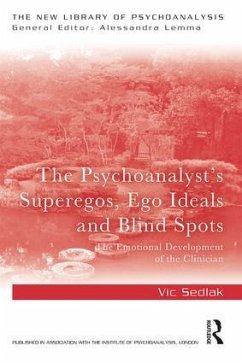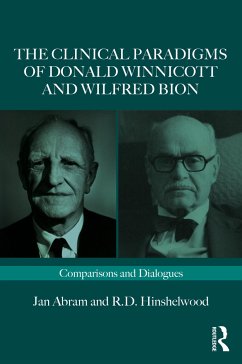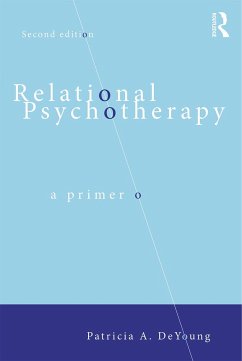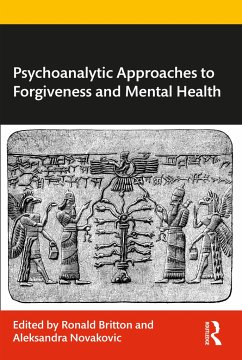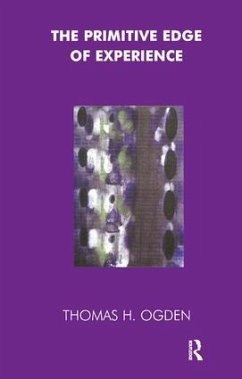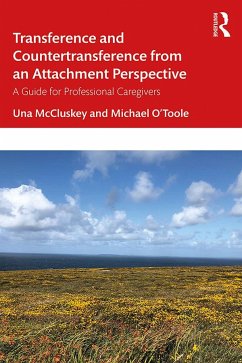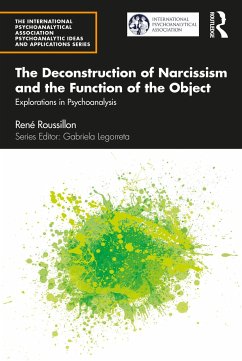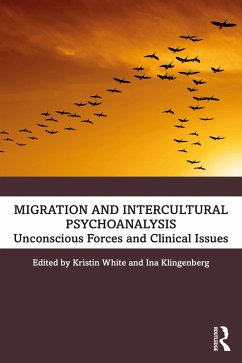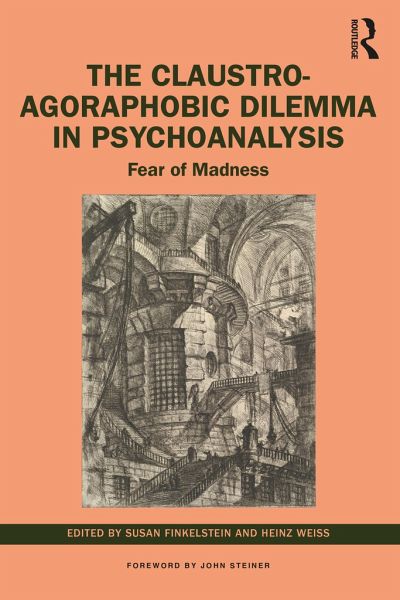
The Claustro-Agoraphobic Dilemma in Psychoanalysis
Fear of Madness
Herausgegeben: Finkelstein, Susan; Weiß, Heinz
Versandkostenfrei!
Versandfertig in 6-10 Tagen
34,99 €
inkl. MwSt.

PAYBACK Punkte
17 °P sammeln!
This collection addresses the theory of claustro-agoraphobic anxieties and schizoid phenomena. It provides psychoanalytic case studies of the transference and counter-transference dynamic inherent in these agonizing disorders.In The Claustro-Agoraphobic Dilemma in Psychoanalysis: Fear of Madness, Susan Finkelstein and Heinz Weiss gather both classic papers and new essays, presenting a timely assessment of claustro-agoraphobia as first developed by Henri Rey. This volume includes papers by Helene Deutsch, Bertram Lewin, Edoardo Weiss, Esther Bick, Donald Meltzer, Albert Mason, John Steiner, and...
This collection addresses the theory of claustro-agoraphobic anxieties and schizoid phenomena. It provides psychoanalytic case studies of the transference and counter-transference dynamic inherent in these agonizing disorders.
In The Claustro-Agoraphobic Dilemma in Psychoanalysis: Fear of Madness, Susan Finkelstein and Heinz Weiss gather both classic papers and new essays, presenting a timely assessment of claustro-agoraphobia as first developed by Henri Rey. This volume includes papers by Helene Deutsch, Bertram Lewin, Edoardo Weiss, Esther Bick, Donald Meltzer, Albert Mason, John Steiner, and Claudia Frank, as well as a chapter by Kristin White on working remotely with psychoanalytic patients during the Covid-19 pandemic. Applying a Freudian, Kleinian, and Bionian methodology, this collection argues for a long-term approach to psychoanalytic treatment in order to help claustro-agoraphobic patients work through the unconscious conflicts that interfere with their capacity to engage in a committed relationship.
This book is essential reading for psychoanalysts in practice and training and will appeal to academics and historians interested in the universality of spiritual and mythic motifs.
In The Claustro-Agoraphobic Dilemma in Psychoanalysis: Fear of Madness, Susan Finkelstein and Heinz Weiss gather both classic papers and new essays, presenting a timely assessment of claustro-agoraphobia as first developed by Henri Rey. This volume includes papers by Helene Deutsch, Bertram Lewin, Edoardo Weiss, Esther Bick, Donald Meltzer, Albert Mason, John Steiner, and Claudia Frank, as well as a chapter by Kristin White on working remotely with psychoanalytic patients during the Covid-19 pandemic. Applying a Freudian, Kleinian, and Bionian methodology, this collection argues for a long-term approach to psychoanalytic treatment in order to help claustro-agoraphobic patients work through the unconscious conflicts that interfere with their capacity to engage in a committed relationship.
This book is essential reading for psychoanalysts in practice and training and will appeal to academics and historians interested in the universality of spiritual and mythic motifs.





